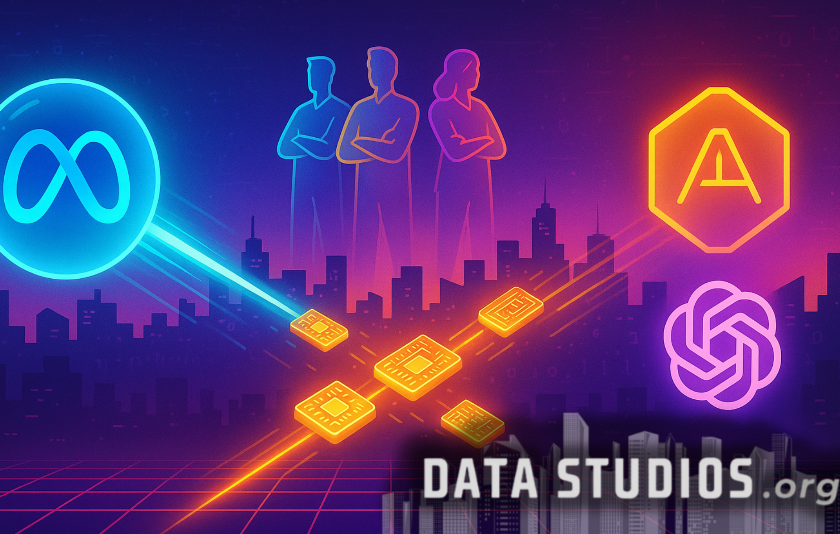Meta tries again to buy AI talents: Anthropic and OpenAI reject $100 million offers
- Graziano Stefanelli
- Jul 21, 2025
- 4 min read

The record-breaking sums offered to engineers from the two AI giants set a new level in the global battle for technological talent.
Let's see how these offers came about, what really happened, and what strategies the major players are adopting to defend themselves in what is becoming a true “war for brains”.
Meta tries to buy the future of artificial intelligence.
In recent months, the AI sector has witnessed a series of unprecedented economic offers. In July 2025, Benjamin Mann from Anthropic publicly revealed that Meta had tried to recruit several of his company’s top engineers by offering compensation packages worth around $100 million each, distributed over four years. The news, first disclosed during an episode of “Lenny’s Podcast” on July 20, was immediately picked up by major international outlets.
According to Mann, however, this strategy did not bear fruit: none of the recipients accepted Meta’s proposal. The attempt to “poach” the best AI talent from a strategic competitor nevertheless demonstrates the determination—and the growing pressure—defining the global race to develop ever more powerful and autonomous systems.
Multimillion-dollar offers with no precedent.
The figures revealed in recent weeks go far beyond the typical dynamics of Silicon Valley. We are talking about total packages worth $100 million for just a handful of selected top engineers, including guaranteed compensation, equity, bonuses, and benefits over multiple years.
In Anthropic’s case, Meta put on the table a package of “around $100 million over four years” for key engineers. This offer not only sets a historic record for the sector but also makes it clear that the real battle in AI is fought not only with algorithms and computing power, but above all with human capital.
For comparison, a few months earlier, Meta had offered $100 million signing bonuses to OpenAI researchers, as confirmed by Sam Altman in June 2025. In that case, it was an upfront amount to entice the best talent to leave OpenAI and join the competition, on top of lavish salaries and stock awards.
OpenAI and Anthropic respond: defending talent becomes an absolute priority.
If the “war for brains” is being waged with millions, the countermeasures from the targeted companies were not long in coming. OpenAI, after learning about Meta’s offers, decided to strengthen its internal retention by offering bonuses between $1 and $2 million and stock grants of up to $20 million. These amounts are much lower than the $100 million offered by Meta, but still well above the sector’s usual standards.
Anthropic, for its part, focused entirely on a company culture strongly oriented toward mission and social responsibility, aiming to keep internal motivation high and reinforce team cohesion. According to Mann, none of those who received Meta’s offers ever seriously considered switching sides.
The differences between the offers: upfront bonus or multi-year package?
Even though the symbolic “$100 million” figure went viral, the structure of Meta’s offers was different in each case:
OpenAI: Meta was offering a $100 million upfront signing bonus, one-time, plus annual pay and stock options.
Anthropic: The offer involved a $100 million package spread over four years, with a guaranteed portion and a mix of cash and stock.
The difference isn’t just formal: an upfront bonus offers immediate liquidity and sends a message of radical break, while a four-year package ties the recipient to long-term goals and performance. In both cases, these incentives are far outside the traditional tech landscape.
Why is Meta willing to do anything to poach top engineers?
Meta, like other American big tech companies, is now in a phase where human capital becomes the true differentiating factor in the field of advanced AI. In a market where skills are limited and demand is growing exponentially, the few engineers who have contributed to frontier systems (next-generation LLMs, autonomous agents, supervisory architectures, etc.) represent an inestimable value, difficult to replicate or acquire through standard recruiting processes.
For Meta, even managing to hire a handful of key figures from major competitors could mean accelerating internal development of language models, strengthening its international positioning, and closing the gap with OpenAI and Anthropic.
The industry’s reaction: more company culture, less focus on mere salary.
Perhaps the most significant aspect of this story is that, despite these monster offers, none of the top engineers at OpenAI or Anthropic accepted to change company. This highlights how, today, mission, internal cohesion, and shared values can be worth as much as (or more than) any financial incentive, at least for those at the center of global technological transformation.
The result is a redefinition of the very concept of “talent”—less and less tied solely to salary dynamics and increasingly intertwined with identity, company culture, and the sense of participating in social change.
A precedent that will change the tech labor market.
The wave of $100 million offers is bound to leave a deep mark on the AI sector, both in terms of compensation policies and retention strategies. Companies will have to develop new approaches to attract and retain talent, combining economic incentives, stock options, benefits, training, and a strong internal culture.
We are facing a real “war for brains” that, in the coming years, could drive figures even higher and force companies to reinvent the relationship between human capital and technological innovation.
____________
Summary table of Meta’s offers to top engineers (June–July 2025)
Period | Target company | Type of offer | Amount | Structure | Result |
June 2025 | OpenAI | One-time signing bonus | $100 million | Upfront + annual package | No takers |
July 2025 | Anthropic | Guaranteed 4-year package | $100 million | Cash + stock, distributed | No takers |
____________
FOLLOW US FOR MORE.
DATA STUDIOS


